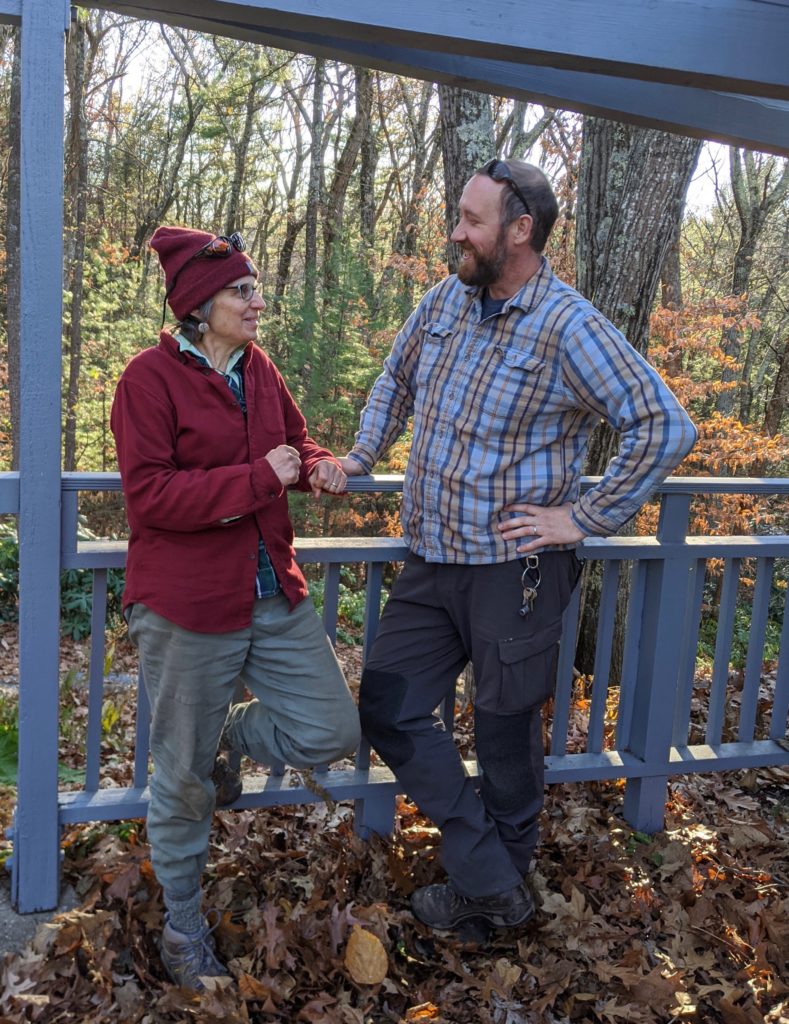
Carol Lundeen with Native Plant Trust Director of Horticulture Uli Lorimer outside the Trust’s education building after his Plant Adaptations class at the Trust in Framingham, MA. Lorimer demonstrated how every feature of a plant is a result of an adaptation designed to afford reproductive, environmental or cultural success.
The magic of botany. If you love botany, or appreciate nature, you would have loved Uli Lorimer’s Plant Adaptations class at Native Plant Trust. Right down to the molecular level, every feature of a plant is a result of an adaptation designed to afford reproductive, environmental or cultural success. This class explored the myriad ways plants have adapted to different habitats, soil types, pollination and dispersal schemes while co-evolving with other organisms in shared, co-dependent ecosystems.
Some adaptations may make it very difficult for a plant to survive in different environments, cultural and/or ecological conditions than those in which it evolved over time, which is why climate change makes it so difficult for some plants that their populations and distributions have declined, and some are vulnerable to extinction. Other plants are able to thrive and reproduce in a wide variety of situations, and so can overcome and replace vulnerable populations.
Native Plant Trust’s mission is to conserve and promote New England’s native plants to ensure healthy, biologically diverse landscapes, and vision is that through their leadership, New England’s native plants will exist in vigorous populations within healthy, evolving ecosystems, and people across the region will actively promote and protect them in the wild and in their gardens.
As Director of Horticulture at Native Plant Trust, Lorimer oversees Garden in the Woods, a botanic garden in Framingham, MA, and Nasami Farm in western MA, a nursery focused on propagation of and research about New England native plants.
